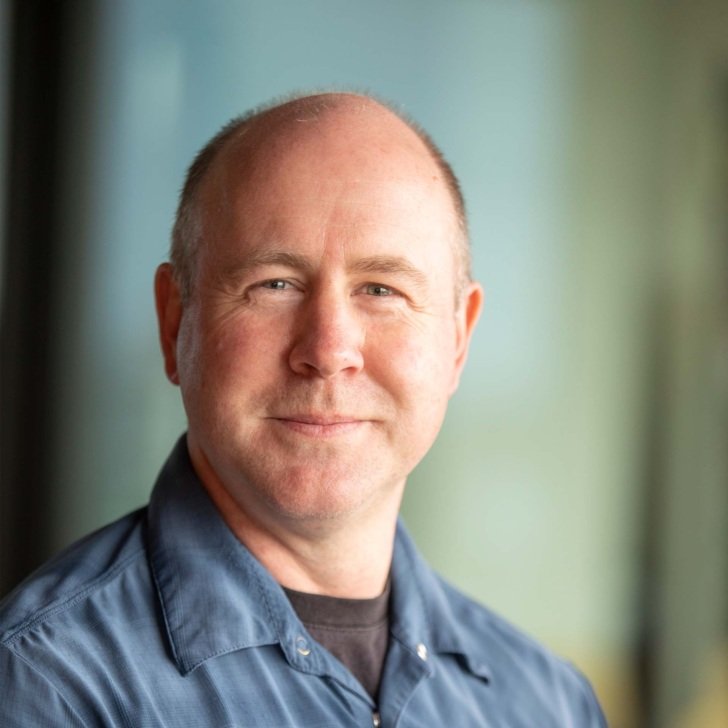Dr Stuart McDougall
BSc (Hons), PhD
Location
Parkville Campus
30 Royal Parade
Parkville Victoria 3052
Research group
Viscerosensory Group

Biography
Stuart received a B.Sc (Hons) majoring in pharmacology from Monash University in 1998. He subsequently worked as a research assistant at West Virginia University (1999 to 2000) before returning to Australia to earn a PhD in neuroscience from Monash University in 2005.
He completed his postdoctoral training in the Department of Physiology and Pharmacology at Oregon Health & Science University in Portland, Oregon (2005 to 2011) in the Andresen laboratory with a CJ Martin fellowship. He was promoted to Research Assistant Professor in 2010. Stuart was recruited by The Florey Institute to establish a laboratory in 2012 and is currently a senior research fellow and group head within the institute.
Stuart’s primary interests are in neuronal signalling and synaptic integration. His research has primarily focused on the viscerosensory system, particularly neural signals sent from the internal organs to the brain via the vagus nerve. The McDougall laboratory, also known as the Viscerosensory Lab, aims to manipulate behaviours, such as satiety, seizures, and memory, as well as physiological outcomes like blood pressure, via selective modulation of viscerosensory signals. The group is currently pursuing optoceutical strategies to treat diseases such as obesity.
Key collaborators:
Professor Andrew Lawrence, The Florey
Professor Clare Parish, The Florey
Professor John Furness, The Florey
Professor Ross Bathgate, The Florey
Professor Andrew Allen, University of Melbourne
Associate Professor Song Yao, University of Melbourne
Associate Professor Jenny Gunnerson, University of Melbourne
Professor Mathias Dutschmann, Case Western Reserve University
Professor Lachlan Thompson, University of Sydney
Career highlights
Current roles
- Animal Ethics Committee Category B member
- Invited lecturer NEUR30002, University of Melbourne
- Guest lecturer Advanced Neuroscience Workshop, Florey – Ian Foster
- Course facilitator for the Australasian Course in Advanced Neuroscience, Australasian Neuroscience Society
Research projects
- A new chemogenetic method that enables functional neural circuit analysis
- Optogenetic activation of vagal afferents to decode viscerosensory signal processing within the brain
- Do vagal afferents synapse at parasympathetic motor neurons within the brainstem?
- Mapping and defining the vagal viscerosensory information to the upper spinal cord
Awards and achievements
- 2022-2024 — NHMRC Ideas grant ‘Infiltrating central command to selectively alter autonomic function.’ as CIA
- 2019-2022 — NHMRC Project grant ‘The vagus nerve and gut–brain interactions: the underpinnings of successful weight loss surgery through recruitment of brown adipose tissue.’ as CIC, CIA Prof Brian Oldfield
- 2017-2019 — Australian Research Council Discovery Project ‘Inhibition of sensory relay mechanisms’ as CIB, CIA A/Prof. Mathias Dutschmann
- 2017 — Florey ‘Near miss’ scheme, Top-ranked application based on NHMRC scores
- 2016-2018 — NHMRC Project grant ‘A potential analgesic target in a novel clinically-relevant neuropathic pain pathway.’ as CIB, CIA Dr Jenny Gunnersen
- 2015-2017 — NHMRC Project grant ‘Understanding the origins of neurogenic hypertension’ as CIB, CIA Dr Song Yoa
- 2015 — University of Melbourne Research Grant Support Scheme
- 2014 — University of Melbourne Early Career Researcher Grants Scheme
- 2013 — Harold Mitchell Foundation Postdoctoral Travel Fellowship
- 2011-2013 — C.J. Martin Fellowship
- 2006-2008 — C.J. Martin Fellowship